Glucobay 25
Glucobay 25 is a member of a class of anti-diabetic medications known as alpha-glucosidase inhibitors. It is used to treat type 2 diabetes, particularly in patients for whom diet and exercise alone are insufficient to regulate blood sugar levels. Glucobay 25 is a prescription medication that may be taken alone or in conjunction with other medications. Type 2 diabetes is a chronic (long-lasting) disease that impairs our body’s glucose metabolism. Individuals with type 2 diabetes either produce insufficient insulin or the insulin produced is unable to work properly in the body (insulin resistance). Type 2 diabetes is most commonly found in middle-aged or older adults, which is why it is also referred to as adult-onset diabetes.
Glucobay 25 contains ‘Acarbose,’ which inhibits the action of intestinal enzymes responsible for the breakdown of complex sugars and starches to simple sugars. As a result, the absorption of sugar into the blood is delayed, and the abnormal rise in blood sugar levels following meals is reduced.
Glucobay 25 should be taken with food and chewed thoroughly, preferably with the first bite of each meal, or swallowed whole with a small amount of water. Avoid crushing or breaking it. Your doctor will determine the frequency with which you should take your medications based on your medical condition. You may feel flatulence (gas), stomach pain, or diarrhea in some circumstances. The majority of these Glucobay 25 adverse effects are transient and resolve on their own. However, if any of the above-mentioned adverse effects persist or worsen, please visit your physician.
Please inform your doctor if you have a known allergy to Glucobay 25 or any other medication. Glucobay 25 should not be used by children. Please contact your doctor if you are pregnant or breastfeeding before taking Glucobay 25. Consume no alcohol when using Glucobay 25, as it may cause an increase or drop in blood sugar levels.
Glucobay 25 Indications Type 2 diabetic mellitus
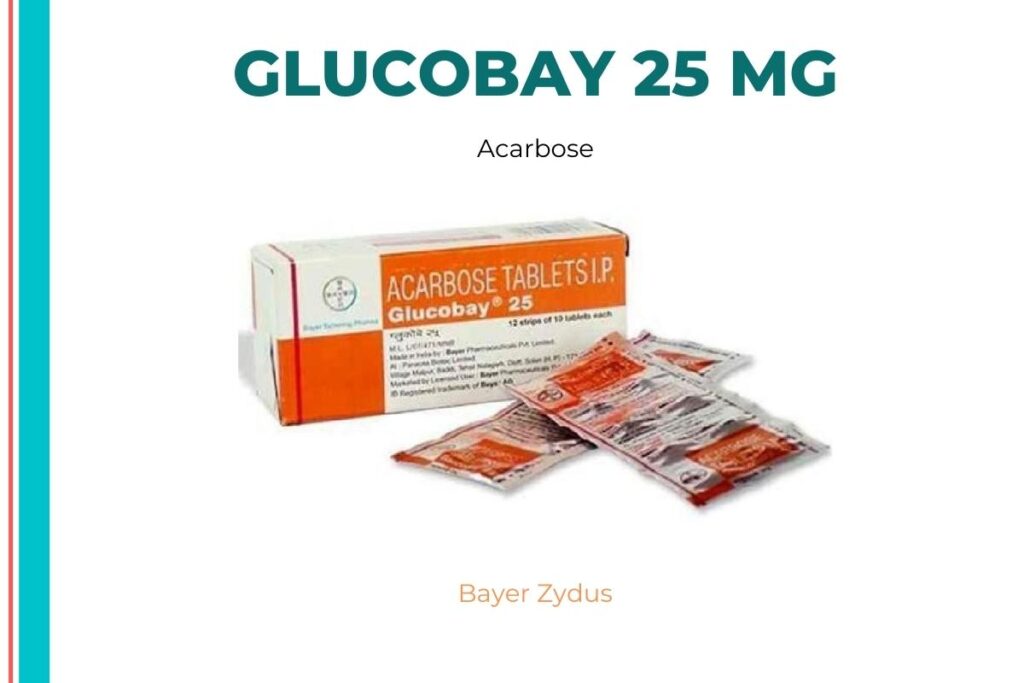
Medicinal Advantages
Glucobay 25 is an anti-diabetic medication that is used to treat type 2 diabetes in patients whose blood sugar levels cannot be maintained only via diet and exercise. Glucobay 25 is a prescription medication that may be taken alone or in conjunction with other medications. Glucobay 25 suppresses intestinal enzymes responsible for the breakdown of complex sugars and starches into simple sugars. As a result, the absorption of sugar into the blood is delayed, and the abnormal rise in blood sugar levels following meals is reduced. Controlling blood sugar levels is critical to avoiding additional consequences of diabetes such as eye difficulties, kidney damage, eye damage, and limb loss.
Use Instructions
It is recommended that you take Glucobay 25 in the doses indicated by your doctor. Glucobay 25 should be taken with food and chewed thoroughly, preferably with the first bite of each meal, or swallowed whole with a small amount of water. Avoid crushing or breaking it. Adhere to the diet suggested by a physician.
Storage Keep out of direct sunlight and in a cool, dry area.
Glucobay 25 Adverse Reactions
As is the case with all medications, Glucobay 25 may produce some typical adverse reactions such as flatulence (gas), stomach pain, or diarrhea. The majority of Glucobay 25’s adverse effects are mild and resolve on their own. However, if adverse effects continue, you should visit your physician.
Adverse Drug Reactions
Please inform your doctor if you have severe kidney or liver disease, ulcerative colitis or Crohn’s disease (conditions that cause bowel swelling, diarrhea, bowel pain, vomiting, and weight loss), or a large hernia (bulging of a tissue or organ through an unusual opening) in the intestine before taking Acarbose. Acarbose is contraindicated in pregnant or nursing women. As a result, pregnant or breastfeeding women should see a physician before taking Acarbose.
Interactions Between Drugs
Interactions Between Drugs: Acarbose may interact with other diabetes medications (insulin, metformin), antibiotics (neomycin), heart-related medications (digoxin), cholesterol-lowering medications (cholestyramine), and medications containing digestive enzymes (lipase, amylase), and intestinal absorbents (charcoal).
Acarbose may combine with table sugar (cane sugar) and induce diarrhoea or severe stomach discomfort. As a result, avoid home sugar (cane sugar) and foods that contain it. Additionally, avoid alcohol consumption while taking Acarbose, as this may result in abnormally high or low blood sugar levels.
Before taking Acarbose, individuals with severe kidney or liver disease, ulcerative colitis or Crohn’s disease (conditions characterized by bowel swelling, diarrhoea, bowel pain, vomiting, and weight loss), or a large hernia (bulging of a tissue or organ through an unusual opening) in the intestine should consult a physician.
Safety Recommendations
ALCOHOL
It is recommended that you avoid alcohol while taking Acarbose since it may result in abnormally high or low blood sugar levels.
PREGNANCY
Acarbose is a Category B pregnancy medication and is generally not suggested for pregnant women due to a lack of clinical data.
BREAST FEEDING
While taking Acarbose, avoid nursing as it may be secreted in breast milk.
DRIVING
Acarbose has been shown to have no effect on your ability to drive or operate machinery.
LIVER
Acarbose should be used with caution, particularly if you have a family history of liver disease/conditions. Your doctor may alter the dose as necessary.
KIDNEY
Acarbose should be used with caution, particularly if you have a family history of kidney disease/conditions. Your doctor may alter the dose as necessary.
Advice on Diet and Lifestyle
Exercise regularly for at least 30 minutes per day, such as cycling, walking, jogging, dancing, or swimming. Spend at least 150 minutes per week exercising.
Maintain a healthy body weight, as obesity is also associated with diabetes onset.
Consume a low-fat, low-sugar diet. Substitute whole grains, fruits, and vegetables for carbs-containing foods, as carbohydrates convert to sugars, resulting in high blood sugar.
Avoid alcohol and tobacco usage.
Special Guidance
Continue taking Acarbose even if you believe your blood sugar levels are stable. If you miss a dosage, do not double the dose; instead, visit your doctor.
When taking Acarbose, consume small frequent meals and prevent prolonged fasting. Be aware of hypoglycemia (low blood sugar) symptoms such as excessive sweating, dizziness, palpitations, shivering, severe thirst, dry mouth, dry skin, and frequent urination. If you encounter any of the symptoms listed above, immediately ingest 5-6 candies, 3 glucose biscuits, or 3 teaspoons of honey/sugar and see your physician. Carry these with you at all times, especially on lengthy journeys.
It is always preferable if your physician is aware of any underlying illnesses such as kidney or liver disease, prior heart attack, or alcohol consumption before prescribing Acarbose.
While taking Acarbose, routine blood tests are recommended to evaluate blood sugar levels and enzyme levels in the blood.
Additionally, this item is non-returnable.
Concern for Patients
Type 2 diabetes is a chronic (long-lasting) illness in which the body is unable to utilize insulin correctly. Thus, individuals with type 2 diabetes either do not make enough insulin or have insulin resistance. Type 2 diabetes is most prevalent in people who are middle-aged or older, which is why it is often referred to as adult-onset diabetes. Increased thirst, frequent urine at night, poor wound healing, increased hunger, weariness, and blurred eyesight are all symptoms of type 2 diabetes. In certain circumstances, weight increase may occur, whereas in rare instances, weight reduction may occur. Type 2 diabetes also has complications such as nerve damage, renal difficulties, damaged retina of the eyes or blindness, amputation of limbs, sexual dysfunction, and an increased risk of heart attack or stroke.
FAQs
It is not suggested that you use Acarbose with digoxin (a medication used to treat cardiac problems), as the combination of these two medications may reduce the effectiveness of digoxin by decreasing its blood level. If you are prescribed these medications in combination, it is recommended that you contact your doctor so that the dose can be adjusted appropriately for safe use.
Acarbose frequently causes diarrhea as a side effect. Consumption of table sugar (cane sugar) or foods containing it may also cause diarrhea or severe stomach discomfort. However, if the situation worsens or lasts longer than two or three days, you should visit your doctor.
Acarbose does not produce hypoglycemia on its own. Low blood sugar, on the other hand, may occur when Acarbose is used with other antidiabetic medications, alcohol consumption, increased exercise, or skipping or delaying snacks or meals. However, if you suffer symptoms of low blood pressure such as dizziness, nausea, lightheadedness, dehydration, or fainting, you should visit a physician.
It is not recommended to take more Acarbose than the authorized amount because this may result in increased flatulence (gas), stomach pain, or diarrhea. In the event of an overdose, abstain from beverages and carbohydrate-containing foods for the next 4 to 6 hours. However, if symptoms persist or worsen, it is recommended that you visit a physician.
It is not suggested that you stop taking Acarbose on your own, as abruptly stopping Acarbose may result in recurrent symptoms or worsen the illness. If you have any problems while using Acarbose, please tell your doctor so that an alternate medication can be administered.

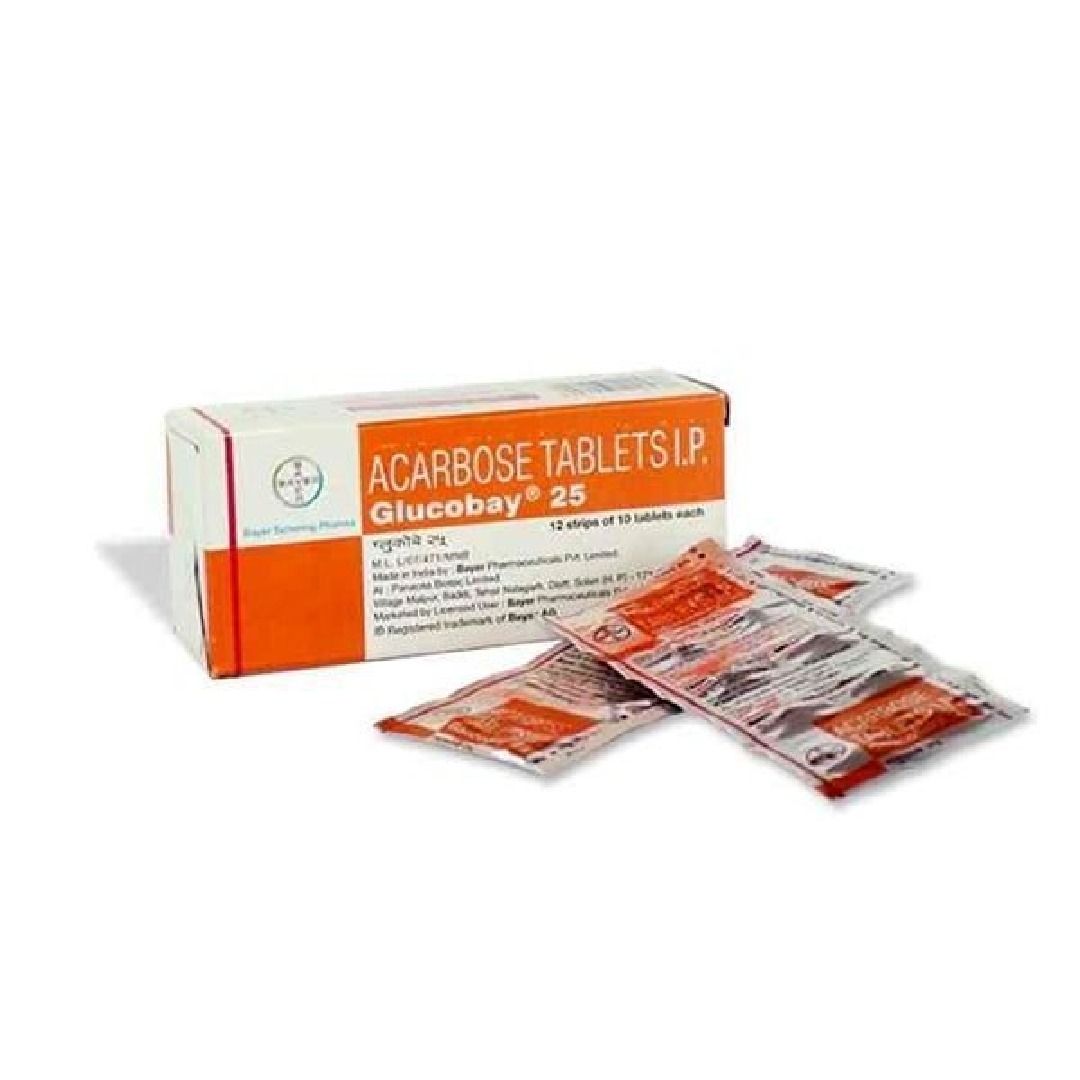
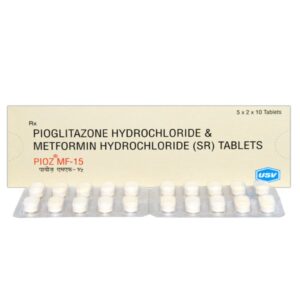
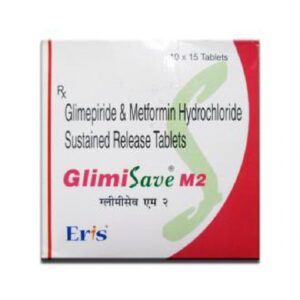
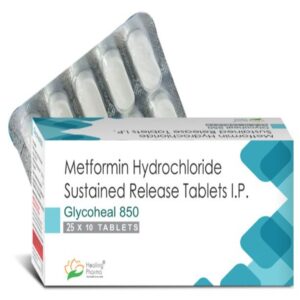



Leave a Reply
You must be logged in to post a comment.